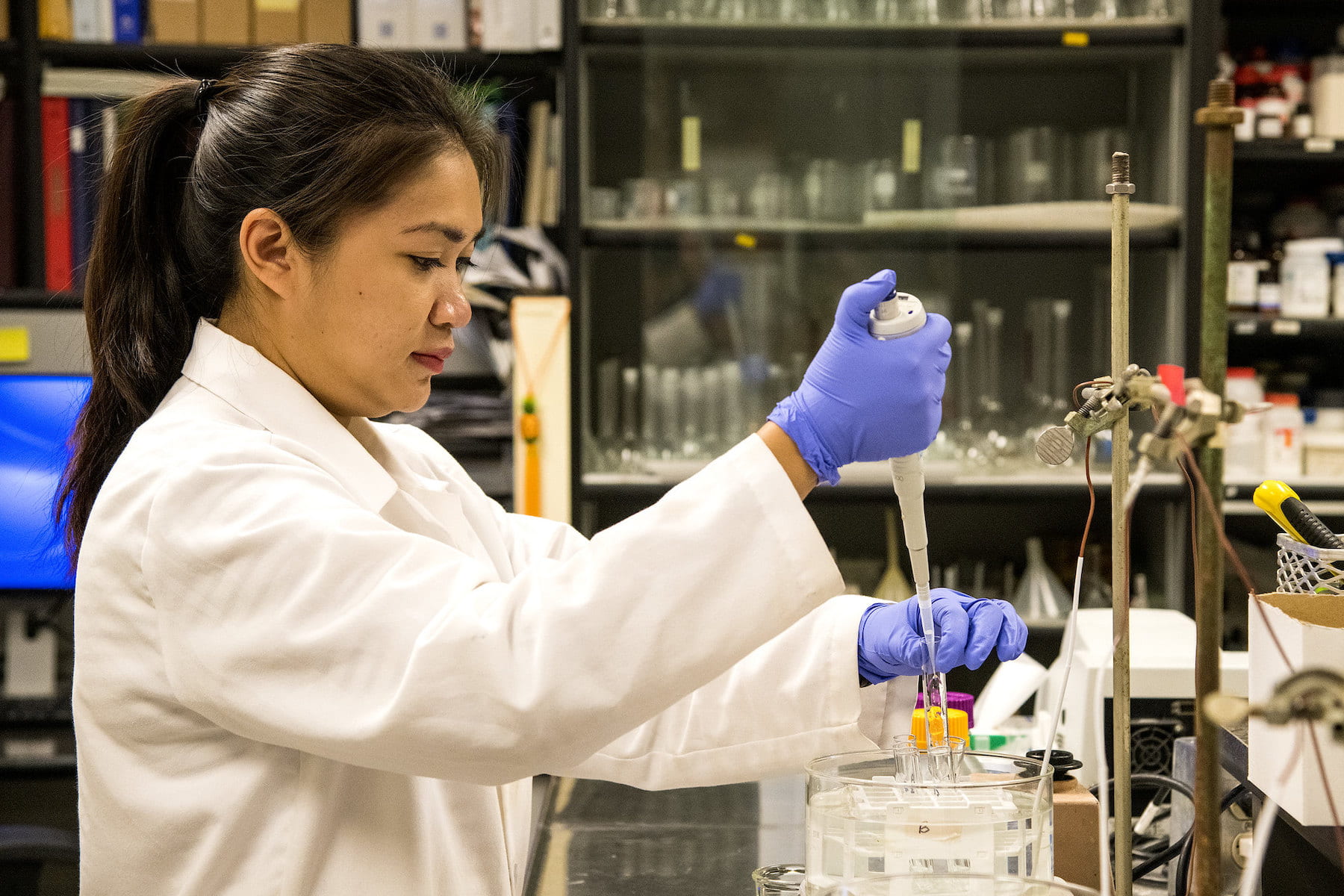Germination Conditions of Brown Rice and its Effects on Rice Flour in Gluten-Free Bread

The Problem:
Gluten-free products are increasingly popular, however, creating gluten-free foods that offer the same taste, texture and appearance as baked goods with gluten is challenging. Gluten-free baked goods tend to be harder, more dense and have a higher starch content, which leads to the product becoming stale more quickly.
The Research
Graduate student Wipada Wunthunyarat, working with Food Science Professor Ya-Jane Wang, sought to answer two questions: 1) Would germinated rice help improve leavening and retard staling, and 2) Does germinating under aerobic or anaerobic conditions affect enzyme activities and properties? During germination, enzymes go into action, changing both the seed’s starch and proteins. This same process produces unique properties in other grains, known as malting. Unlike other grains, rice is able to germinate underwater – anaerobically. The enzyme protease breaks protein down into smaller molecules some of which absorb water, and others that don’t. Both characteristics are essential for dough development and the dough’s ability to be cohesive during leavening – its foaming capacity. Amylases at work during germination break down starch molecules into sugars, which become food for yeasts that will leaven the bread. The respiration of the yeast produces the gas pockets in the dough that let the bread rise.
What Wunthunyarat found was germination improved enzyme action, foaming capacity, volume and shelf-life, while decreasing hardness. She also found that aerobic germination was better than anaerobic, because it produced more enzymatic activity. Wunthunyarat’s research also found that aerobic germination over a four-day period led to a better bread than germination over two days.
The Bottom Line
Aerobic germination of brown rice over four days will produce a flour that makes a gluten-free bread that’s less dense, produces a softer crumb and will have a longer shelf life than breads made with flour ground from non-germinated rice.
The Researcher

Ya-Jane Wang
Professor, Department of Food Science
is a supervisor of the carbohydrate chemistry program, Wang specializes in research that seeks to further the use and improve the performance of carbohydrate-rich bioresources. By developing a better understanding of carbohydrate structure and function, the program team’s goal is for carbohydrates to be better utilized in food, pharmaceutical, and industrial applications.

Wipada Wunthunyarat
a native of Udon Thani, Thailand, is working on her master’s degree in food science at the University of Arkansas. Her work is supported by a Royal Thai Scholarship from the rice department of Thailand’s agricultural ministry.
